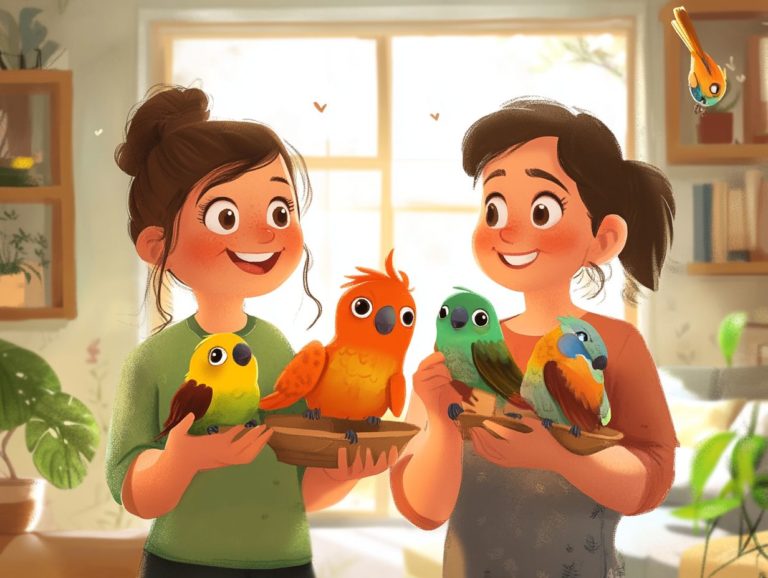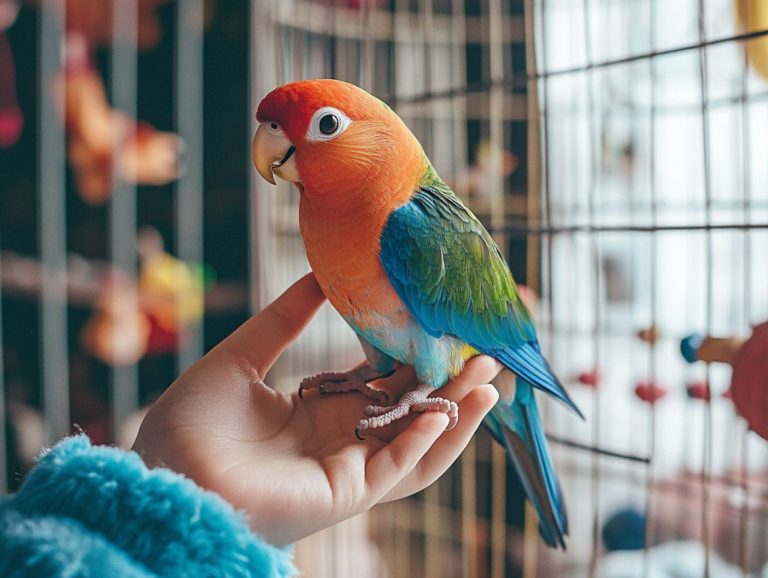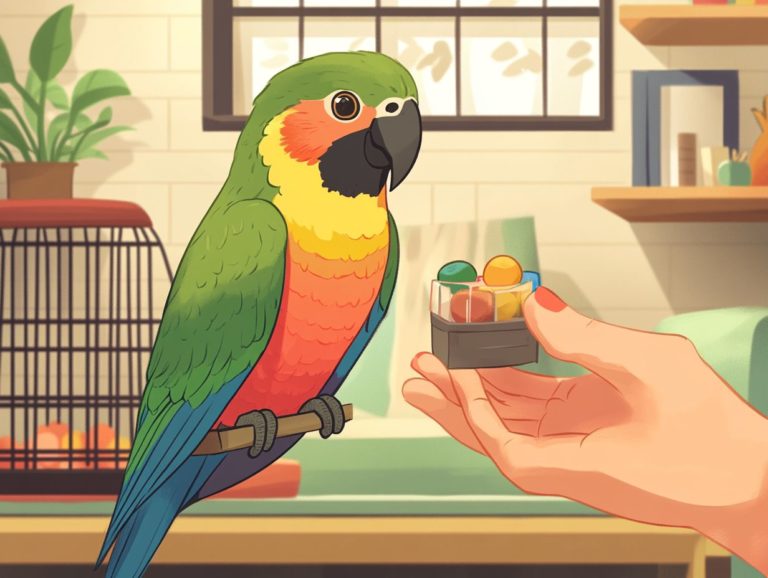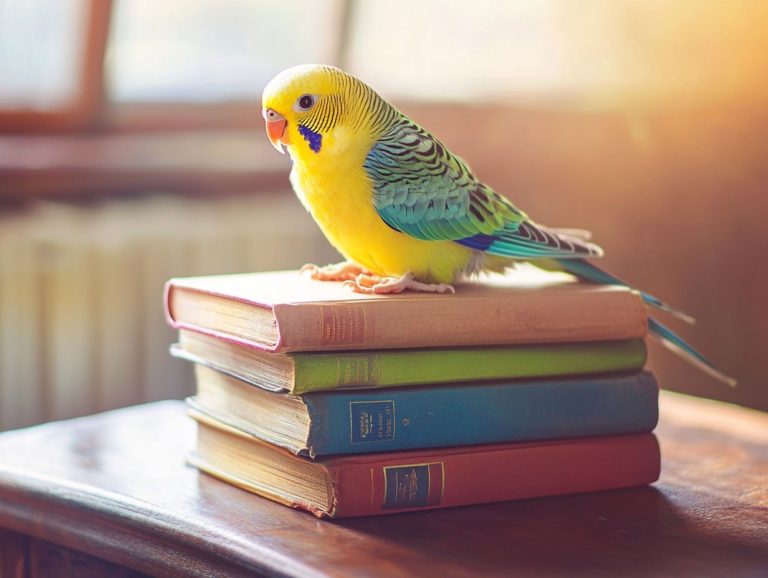Bird Rescue: Your Role in Helping Local Birds
Bird rescue is an essential endeavor that champions the well-being of our feathered companions during their times of need.
As urban landscapes continue to grow and natural habitats recede, birds face many challenges, including injuries and the loss of their homes. This guide highlights the significance of bird rescue, outlines common reasons these magnificent creatures require assistance, and offers practical steps you can take to help.
You will find valuable resources for connecting with local organizations, exploring volunteer opportunities, and learning tips to prevent bird injuries. Join us on this meaningful journey to help our feathered friends thrive!
Contents
- Key Takeaways:
- Understanding Bird Rescue
- Why Birds Need Rescue
- How to Help a Bird in Need
- Finding and Contacting Local Bird Rescue Organizations
- Volunteering with Bird Rescue
- Preventing Bird Injuries and Accidents
- Frequently Asked Questions
- Bird Rescue Basics
- What is the purpose of bird rescue and how can I help?
- What should I do if I find an injured bird?
- How can I support local bird rescue organizations?
- Can I keep a rescued bird as a pet?
- What should I do if I find a baby bird that appears to be orphaned?
- How can I provide a safe environment for birds in my area?
Key Takeaways:
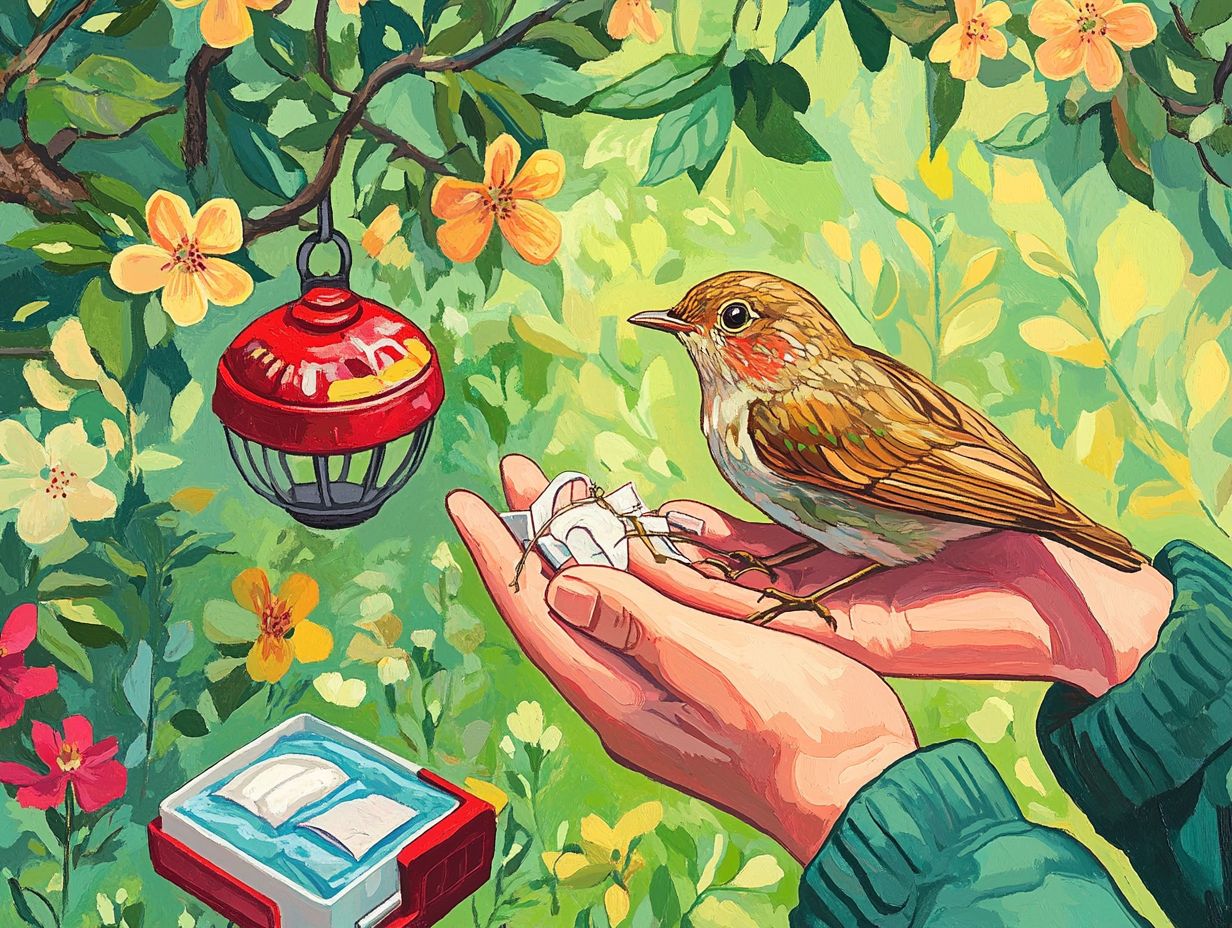
- Be prepared to assist a bird in need by understanding common reasons for bird rescue and following a step-by-step guide.
- If you encounter a bird in distress, find and contact your local bird rescue organization for proper care and rehabilitation.
- Take an active role in preventing bird injuries and accidents by being aware of potential hazards and taking necessary precautions to keep birds safe.
Understanding Bird Rescue
Understanding bird rescue is essential for protecting the survival of various bird species, especially migratory birds, songbirds, and those affected by habitat loss or injury. Organizations dedicated to bird rescue play a crucial role in wildlife rehabilitation, focusing on the care of injured birds and their reintegration into their homes.
Bird rescue not only aids recovery but also highlights the critical need for protecting bird homes and the harmful effects on nature due to human activities. Understanding the role of bird sanctuaries in rescue can enhance your awareness and support, significantly contributing to these efforts and ensuring that our feathered friends thrive in their ecosystems.
What is Bird Rescue?
Bird rescue involves dedicated efforts to save and rehabilitate injured or orphaned birds, often led by committed wildlife rehabilitation centers and passionate bird lovers.
These initiatives encompass providing immediate medical care, creating nurturing environments, and educating the community about the vital roles birds play in our ecosystems. Wildlife centers serve as sanctuaries where injured birds receive essential support and rehabilitation.
Programs focusing on environmental education enlighten the public about the importance of bird conservation and the delicate ecosystems they inhabit.
Effective animal control measures are crucial in reducing human-wildlife conflicts. This ensures that once rehabilitated, these birds can safely return to their habitats, reinforcing biodiversity and fostering harmonious coexistence between humans and wildlife.
Why Birds Need Rescue
Birds often need rescue for several reasons: habitat loss, injuries from outdoor cats, collisions with windows, and harmful impacts from pollution. This underscores the critical importance of dedicated efforts in habitat conservation and wildlife rehabilitation.
Common Reasons for Bird Rescue
Common reasons for bird rescue include injuries from outdoor cats, window collisions, environmental hazards, and diseases like bird flu that threaten avian health.
Outdoor cats have a notorious reputation for their predatory instincts, causing a staggering number of bird fatalities each year. You might be surprised by how many birds fall victim to window collisions, drawn in by reflective glass and brightly lit interiors that trick them into flying straight into barriers.
To tackle these dangers, implementing window safety solutions such as decals, screens, or films can significantly reduce the chances of impact. Wildlife rescue efforts are vital in rehabilitating injured birds and educating the public on essential steps to keep avian populations safe.
It’s crucial for communities to recognize their role in fostering safer environments for our feathered friends. Act now! Your support is crucial for the survival of these birds!
How to Help a Bird in Need
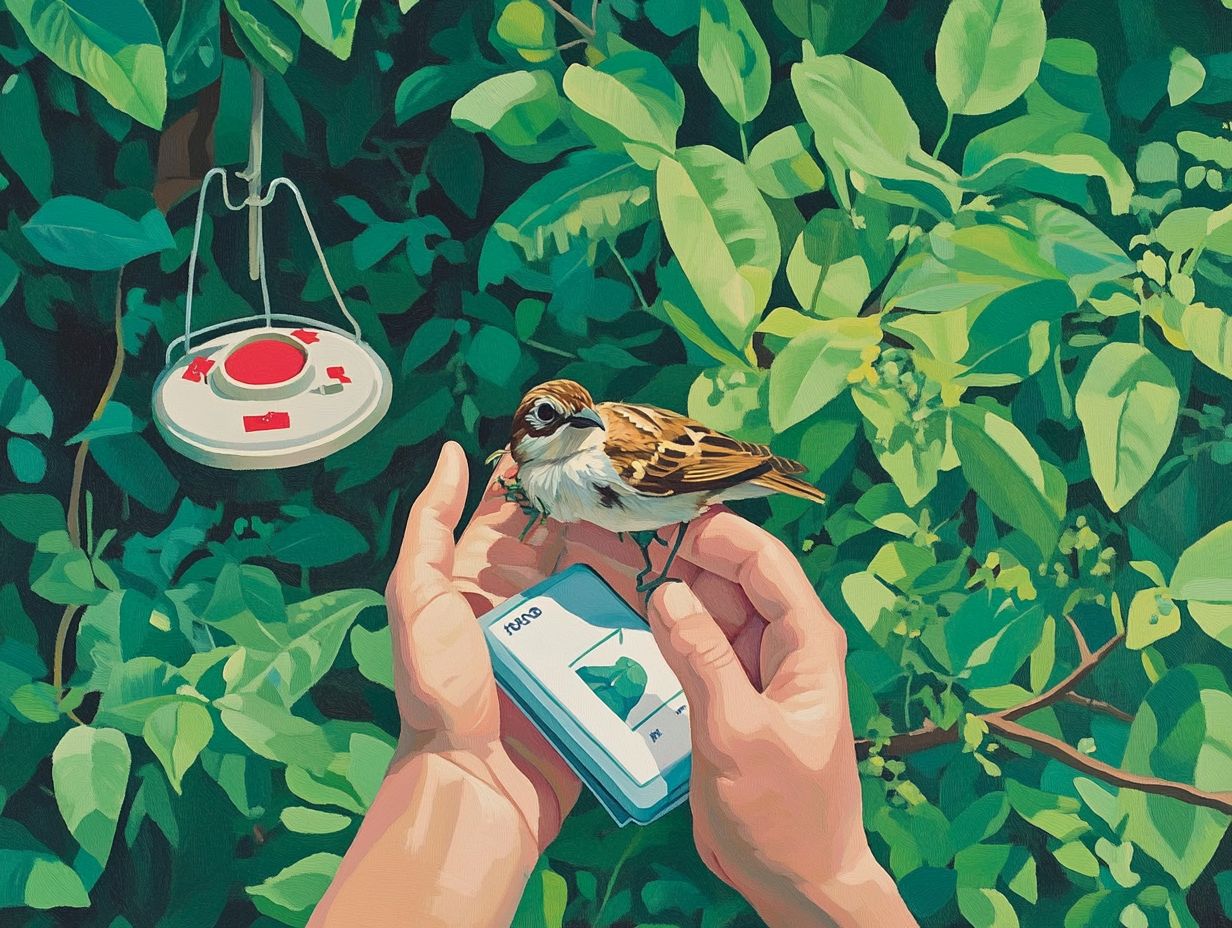
Assisting a bird in need requires a thoughtful approach to ensure its safety and well-being. By understanding the steps to support injured birds, you can play a crucial role in wildlife rehabilitation.
Your actions can make a meaningful difference in their recovery and return to the wild.
Step-by-Step Guide to Assisting a Bird
A comprehensive guide to helping a bird involves a few critical steps: identifying the injury, ensuring the bird’s safety, and contacting a local wildlife rehabilitation center or organization, such as the Cornell Lab, for assistance.
Observe the bird from a distance. Note any visible wounds or signs of distress. Then gently approach it with a towel or a lightweight cloth, creating a comforting space as you secure it in a small, well-ventilated box.
Once you ve contained the bird safely, contact a local wildlife rehabilitation center or organization. Effective communication is key. Provide clear details about the bird’s condition and location, allowing them to offer tailored advice.
Don t forget to check resources like the Cornell Lab of Ornithology’s website, where you can find vital information on wildlife care and a directory of reputable rehabilitators. This can dramatically improve the bird’s chances of recovery!
Finding and Contacting Local Bird Rescue Organizations
Locating and contacting local bird rescue organizations is essential for quick help, and understanding bird rescue networks in your state encourages community involvement in wildlife conservation.
Resources and Tips for Locating and Reaching Out
Utilizing online resources, local directories, and community networks can enhance your ability to find and connect with bird rescue organizations.
Explore websites like BirdLife International and the National Audubon Society, which offer extensive listings of local bird rescue groups. Social media platforms often have community pages dedicated to wildlife conservation where organizations share their missions and needs.
When you reach out, provide information about the specific bird species needing assistance and its location. This helps organizations allocate their resources efficiently.
You can make a difference by volunteering your time, donating supplies, or contributing financially to support the vital work these groups do in preserving bird wildlife and their habitats.
Volunteering with Bird Rescue
Volunteering offers a unique chance to help local birds and learn about their care. You can assist in wildlife care or educational outreach programs.
Opportunities and Responsibilities
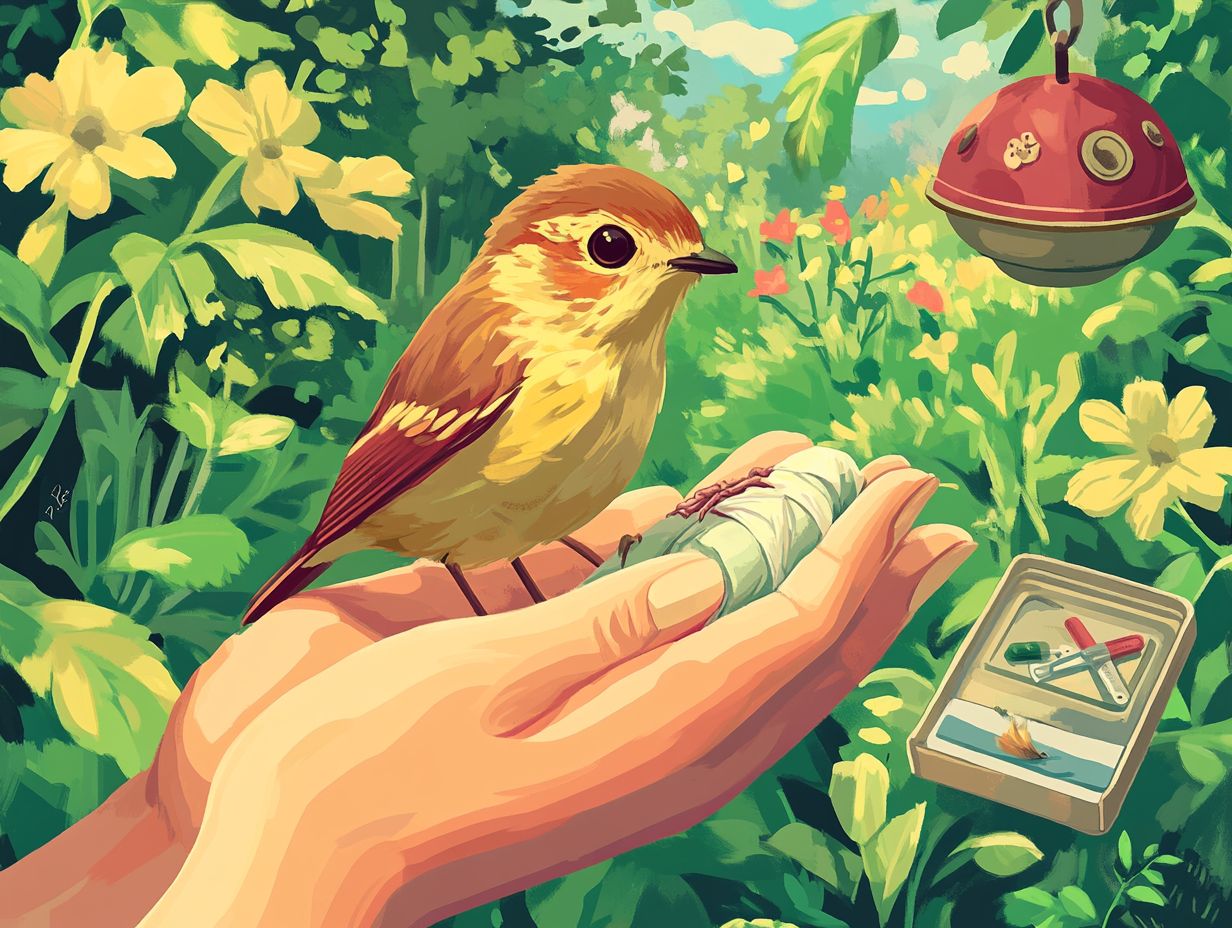
Volunteering in bird rescue presents various roles, from wildlife care to educational outreach programs for bird enthusiasts. Tasks may include monitoring bird populations, providing specialized care for injured or orphaned birds, and organizing local awareness campaigns promoting sustainable practices.
As a volunteer, you may receive specific training to enhance your understanding of bird health, rehabilitation techniques, and the ecological significance of bird species in their habitats.
By embracing these responsibilities, you not only expand your knowledge but also play a vital role in conservation efforts. Your involvement can lead to improved breeding programs, habitat restoration projects, and educational initiatives, fostering a deeper connection between your community and wildlife preservation.
Get involved today and help save our feathered friends!
Preventing Bird Injuries and Accidents
To prevent bird injuries and accidents, you must adopt various strategies. This involves ensuring window safety, managing outdoor cats, and promoting ways to protect local habitats to safeguard wildlife.
Each of these elements plays a crucial role in creating a safer environment for our feathered friends.
What You Can Do to Keep Birds Safe
Take action now! You can ensure the safety of birds in your area by implementing window safety solutions and keeping outdoor cats indoors.
Installing bird-friendly window treatments, such as screens or films, can significantly reduce the risk of collisions. Engaging in local conservation efforts helps protect these magnificent creatures and fosters community among your neighbors.
Participating in neighborhood clean-up events or planting native species in your garden creates a supportive environment for avian life. Raising awareness about the challenges birds face, from habitat loss to climate change, strengthens this initiative.
By sharing information with friends and family or hosting educational workshops, you empower others to take action, amplifying your impact on bird conservation.
Frequently Asked Questions
Bird Rescue Basics
What is the purpose of bird rescue and how can I help?
Bird rescue involves rescuing injured, sick, or orphaned birds and providing care until they can be released back into the wild. You can help by reporting distressed birds to local rescue organizations and by learning how to support your local bird rescue efforts, as well as providing food and shelter for birds in your area.
What should I do if I find an injured bird?
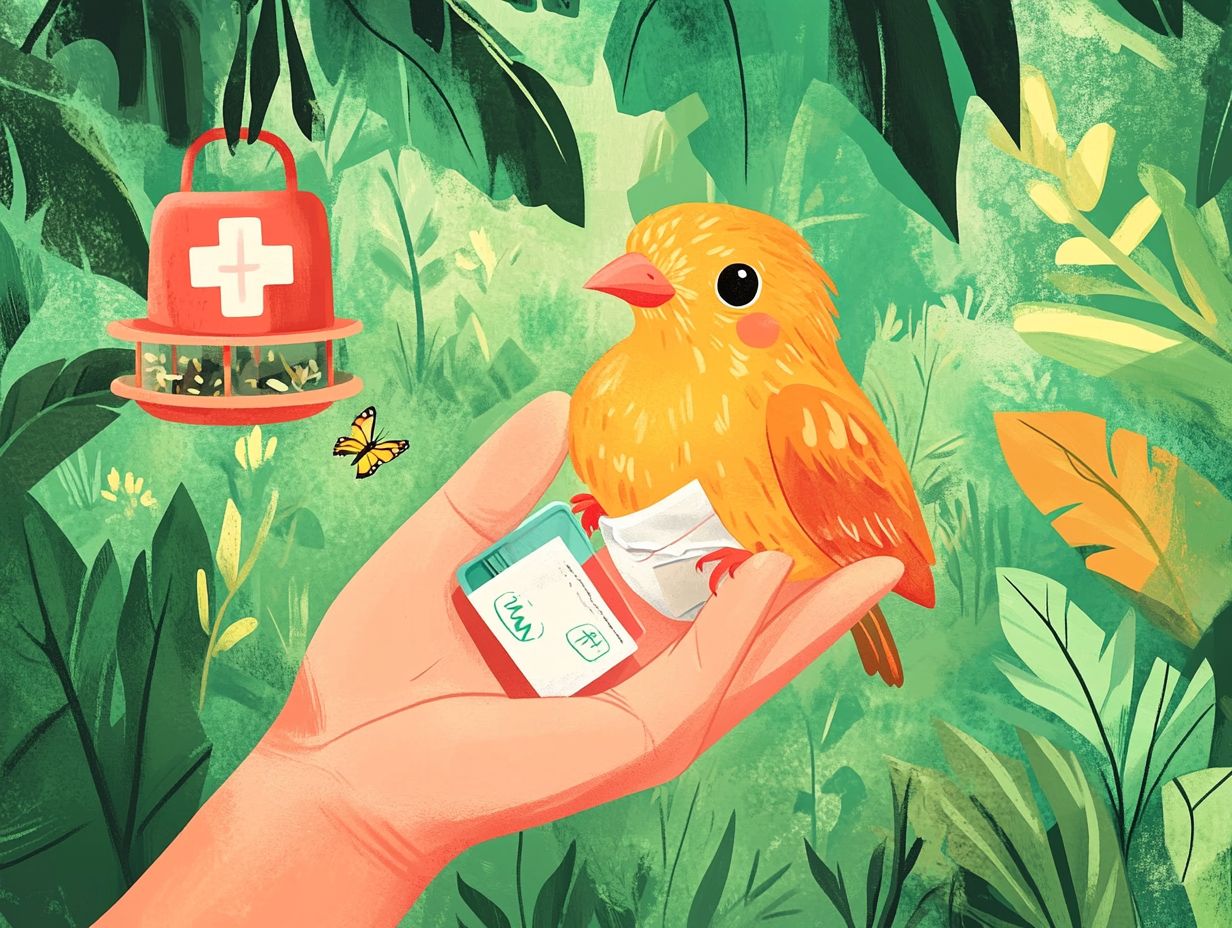
Handle it with care. Use a towel or gloves to gently pick it up and place it in a well-ventilated box or container. Then, contact a local rescue organization for further instructions on caring for the bird.
How can I support local bird rescue organizations?
Support local bird rescue organizations by volunteering your time for rescues and rehabilitation, donating money or supplies, and spreading awareness about the importance of their services.
Can I keep a rescued bird as a pet?
No, it is not recommended to keep a rescued bird as a pet. Birds require specialized care and a natural environment to thrive. It is best to release them back into the wild once they can survive independently.
What should I do if I find a baby bird that appears to be orphaned?
If you find a baby bird that appears to be orphaned, observe it from a distance for at least an hour to see if the parents return. If they do not, contact a local rescue organization for guidance. Avoid attempting to feed the bird or caring for it on your own, as it may require specialized care.
How can I provide a safe environment for birds in my area?
Create a bird-friendly backyard by providing food sources, such as bird feeders, flowers, and fruit trees, and ensuring clean water is available. Keep cats indoors and avoid using pesticides or harmful chemicals in your yard.
Join your local bird conservation group today!



